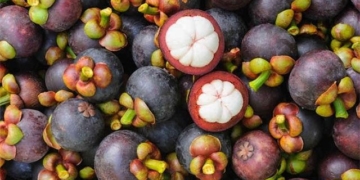Throat inflammation is a common ailment during winter and can be easily contracted. Just a little negligence in keeping warm when going outside can result in immediate throat inflammation.
Guidelines for Preventing and Treating Throat Inflammation in Winter
1. Symptoms of Throat Inflammation
- Patients experience a sore throat, difficulty swallowing, fever, and frequent headaches.
- Throat inflammation may also accompany symptoms like colds, fever, nausea, body aches, swollen tonsils, and lymph node swelling in the neck…

2. Causes of Throat Inflammation
There are many causes of throat inflammation, primarily due to viruses (80%) such as adenovirus, rhinovirus, respiratory syncytial virus, influenza, and measles. The remaining cases are caused by bacteria like Streptococcus, Staphylococcus, pneumococcus, and Haemophilus influenzae. The most dangerous is the Group A Streptococcus as it can lead to complications such as rheumatic fever, arthritis, and kidney inflammation.
Additionally, factors such as weather changes, cold, humidity, dust, cigarette smoke, alcohol, and chemical emissions can also cause throat inflammation.
3. Preventive Measures Against Throat Inflammation in Winter
- Keep the body warm: Low temperatures combined with high humidity make the body susceptible to colds that lead to throat inflammation and sinus infections. Keep warm by wearing sufficient clothing and consuming hot food. Care for children carefully, avoiding exposure to cold rain, ensuring they are dressed warmly, including wearing socks and scarves to keep warm, and avoiding cold winds.
Be careful not to overdress children, as excessive warmth can lead to sweating, increasing the risk of catching a cold. In winter, due to the cold weather, it is not necessary to bathe children every day. Instead, simply wipe their bodies with warm water. You can bathe them twice a week. When bathing, always use warm water and do so in a draft-free room.
When going outside, minimize exposure to cold air by wearing masks, which can help prevent dust and warm the upper respiratory tract. Keeping the ears warm is also very important.

- Nutrition supplementation: A balanced diet helps boost the body’s immune system against diseases. Ensure adequate protein intake, supplement with vitamins, and consume plenty of fruits and vegetables.
- Food hygiene: Maintain food hygiene, eat hot meals, and avoid spoiled food. Regularly practice oral hygiene for children to prevent infections. Wash hands thoroughly, avoid letting children suck their thumbs or pick their noses. Ensure children receive all required vaccinations as per the established program. If a child has a persistent fever or worsening symptoms, promptly take them to a healthcare facility for examination and treatment to avoid complications.
- Daily oral and throat hygiene: Brush teeth and gargle with diluted salt water.
- Wear masks when going outside: to avoid dust and pollution.
- Avoid very cold or very hot drinks, and limit sucking on candies or eating ice cream.
- The bedroom should be well-ventilated but not drafty; if using air conditioning, maintain a comfortable temperature around 28oC.
- Develop a habit of drinking plenty of water, engaging in physical activities, brushing teeth after each meal, washing hands before eating, and washing hands after using the restroom.
- If suffering from dental, oral, sinus, or nasal issues, ensure complete treatment to prevent lingering pathogens that can lead to throat inflammation.
- When throat inflammation is diagnosed, follow treatment protocols strictly, taking prescribed medications as directed.
- Take the correct medications, in the right doses, at the right times; do not self-medicate with antibiotics, as incorrect treatment can lead to drug resistance, complicating future treatments.
- Inhaling products containing menthol can also be beneficial. “This helps clear nasal congestion by creating a cooling sensation in the nose while also alleviating throat inflammation and cough due to its local anesthetic effect.”.
- Some types of honey can also combat throat infections, as they contain natural hydrogen peroxide with antibacterial properties. Giving children honey before bedtime effectively suppresses nighttime coughs better than the common active ingredient dextromethorphan found in over-the-counter cough syrups.
4. Preventing the Spread of Throat Inflammation
- Many people mistakenly believe that throat inflammation is non-contagious. In reality, it spreads through direct or indirect contact. If someone around you has throat inflammation, the best course of action is to avoid close contact with them and wash your hands frequently.
- If you have throat inflammation, you should also wash your hands regularly to limit the spread of bacteria when you cover your mouth and nose while coughing or sneezing.
5. How to Treat Throat Inflammation
- Most people with throat inflammation are treated with antibiotics, antipyretics, and pain relievers, often combined with throat disinfectants. If a doctor prescribes antibiotics, patients must adhere to the regimen. Even if throat inflammation symptoms have resolved, do not stop taking the medication; continue for a while longer to build up bacterial resistance to prevent relapse for effective treatment.
- Honey: Method 1: Take a few spoonfuls of honey directly to alleviate throat pain and itchiness. Method 2: Mix one cup of warm water with a few tablespoons of honey in a 1:3 ratio (three parts warm water to one part honey). Drink this each morning upon waking to soothe the throat and reduce pain. Method 3: Soak 10 grams of dried cordyceps in 100-200ml of pure wild honey. After seven days, it can be used, taking 10-15ml mixed with 70-degree warm water.
- Gargling with cola is also very effective as the carbonation in cola helps clear mucus from the throat.
- Gargling with water containing hydrogen peroxide will help eliminate bacteria causing throat inflammation.
- Cut lemon into slices, mix with salt, and suck on it when first experiencing throat inflammation.

- Sucking on kumquats with salt helps disinfect throat wounds while promoting the recovery of inflammation. This method can be applied at home, providing good effects for those with throat inflammation.
- On cold days, eating hot porridge with scallions, perilla, and pepper will eliminate bacteria in the throat area.
- To treat cough and throat inflammation, use fresh perilla leaves, crush them for juice, and drink. Alternatively, boil perilla leaves with the roots of balloon flower. You can also use green perilla leaves, dry perilla roots, and cook porridge with roasted glutinous rice and tangerine peel to treat coughs and throat inflammation.
- If experiencing hoarseness or loss of voice, use fresh radish juice that has been crushed or juiced (add mung bean water for better results). If you don’t mind the smell of garlic, combining it with garlic can be beneficial. Additionally, eating grapes with the skin and drinking pear juice can help restore voice clarity.
- You may not believe it, but hot, stimulating drinks, like coffee or ginger tea, can be extremely effective in treating throat inflammation. The warmth of these beverages can quickly soothe throat wounds.
- Gargling with aspirin, rather than taking it orally, is one of the most effective ways to combat this ailment. Dissolving a few aspirin tablets in water and using that solution to gargle (not swallow) will alleviate throat pain from inflammation within two hours. The effect lasts for six hours.

Dissolving aspirin in water for gargling will effectively reduce throat inflammation symptoms. (Image: Health News)
- Suck on fresh ginger slices (it is advisable to keep them close to the throat area) to help loosen phlegm, reduce coughing, and alleviate soreness and discomfort. It is recommended to apply this several times a day for optimal results. Steep a piece of fresh ginger sliced with 250ml of boiling water. After 10 – 15 minutes, add a little honey, stir well, and drink while the tea is still warm. It is advisable to consume this regularly 2 – 3 times a day, especially before bedtime to prevent throat pain and strong nighttime coughing. Ginger and onion: Use about 60g of ginger along with finely chopped dry onion, boil them with water. Then, use the steam to inhale through the nose and mouth for 15 – 20 minutes. It is recommended to perform this 2 – 3 times a day for the best results. Ginger and salt: Wash fresh ginger, smash it, and mix it with fine salt. Then, hold the mixture in your mouth until the flavor is gone, then spit it out and rinse your mouth with warm water. Repeat this daily for several days, and symptoms of throat inflammation will significantly improve.
- A less common but proven effective remedy for sore throat is ear acupuncture.
- Additionally, you can apply hot and cold treatment methods: Sucking on ice cubes or popsicles can help soothe pain and hydrate the body. According to health experts, cold ice can effectively treat sore throat as it cools the inflamed tissues locally. It reduces temperature and numbs the nerve endings in the throat, thereby reducing pain signals to the brain. Even after a tonsillectomy, doctors recommend patients eat ice cream. Cold ice cream will come into contact with the inflamed tonsil area, reducing swelling and discomfort.
- Drink turmeric milk: Turmeric contains many powerful antioxidants and can help combat various serious infections. It is also known as the golden elixir. To alleviate sore throat pain, you can drink turmeric milk before bed. If you tend to feel bloated from drinking milk at night, you can consume less milk or drink it at another time of the day. Adding a bit of black pepper can enhance the health benefits of turmeric.
- Getting adequate rest is essential for recovery. Sleep helps strengthen the immune system. Getting less sleep can reduce the number of white blood cells needed to fight infections that cause sore throats.
“Roars” from another planet reveal something identical to Earth
Vietnam has a strange plant that can be drunk directly from its trunk, potentially addictive
Why, when a horse breaks its leg, is euthanasia the only option left for them?




















































